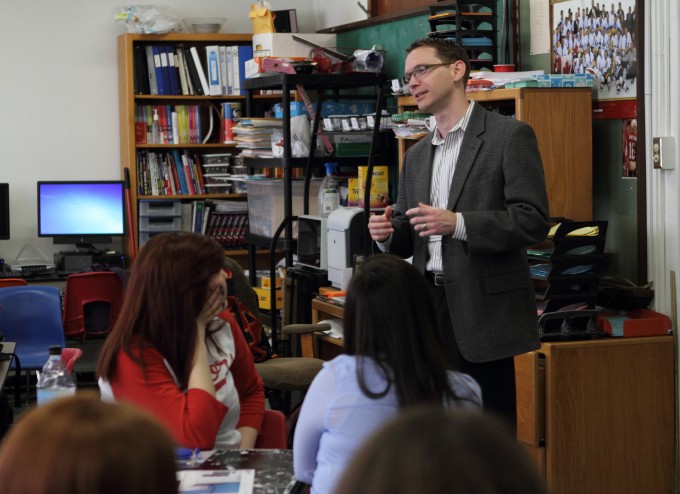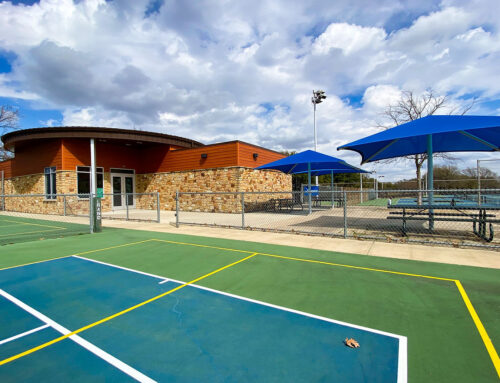
Dallas ISD Trustee Mike Morath (Dallas ISD Flickr)
Texas Governor Greg Abbott spent much of his time in recent weeks making the rounds as a cable news commentator, letting Americans know why his state is one of the many trying to block Syrian refugee resettlement. Just before he hit the national news circuit, however, Abbott named his appointees to a new education commission created last session by the State Legislature, and put Dallas ISD Trustee Mike Morath, who represents Woodrow Wilson High School and the schools that feed into it, at the head as presiding chair.
The Texas Commission on Next Generation Assessments and Accountability will conduct what Morath calls a “review of the state system” that has undergone “continuous evolution” since the first testing iteration in 1983. Morath has spent time advocating for improvements because “so much of the change we’re trying to accomplish in Dallas is dependent on the framework that’s coming out of Austin.”
A spokesman from the governor’s office says Abbott chose Morath to head the commission because “Governor Abbott selects and appoints individuals he believes are the most qualified and capable of bringing excellence to the organizations in which they serve.” (Apparently Abbott was too busy with cable news stations to give us any particulars on Morath.)
A recent parent-led backlash against standardized testing has emerged in Texas, though Morath will point out that he’s “a big fan of consequences for adults and not consequences for kids.” Assessments are “what taxpayers have as their lever of control for helping students,” he says, and when done correctly, “can be used to properly motivate and support adults in our system.”
The commission likely will begin meeting in January, and has until Sept. 1, 2016 to make recommendations to the legislature and to other regulatory entities. House Bill 2804’s specific charge is to address:
“(1) the purpose of a state accountability system and the role of student assessment in that system;
(2) opportunities to assess students that: (A) provide actionable information for a parent or person standing in parental relation to a student, an educator, and the public; (B) support learning activities; (C) recognize application of skills and knowledge; (D) measure student educational growth toward mastery; and (E) value critical thinking;
(3) alignment of state performance standards with college and career readiness requirements in collaboration with the Texas Workforce Commission and Texas Higher Education Coordinating Board;
(4) policy changes necessary to enable a student to progress through subject matter and grade levels on demonstration of mastery;and
(5) policy changes necessary to establish a student assessment and public school accountability system that meets state goals, is community based, promotes parent and community involvement, and reflects the unique needs of each community.”





